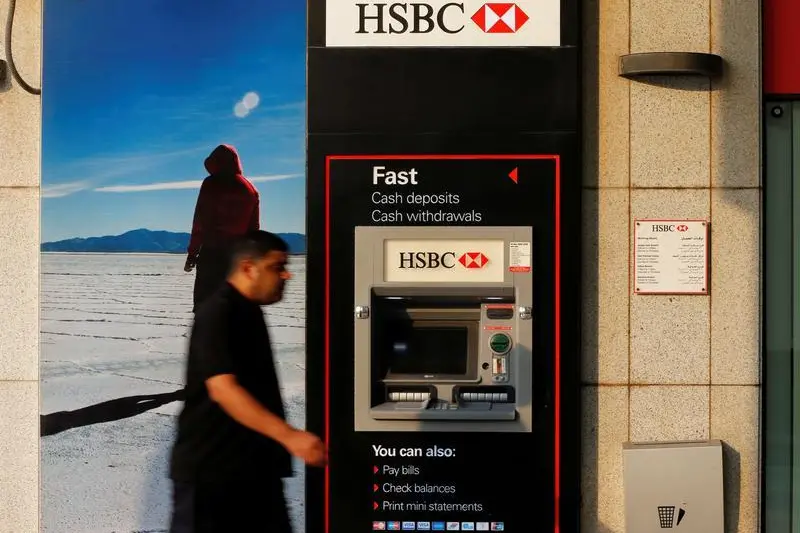PHOTO
Bahrain will introduce a new rule that would require firms to transfer salaries of all expatriates through local banks.
The Wage Protection System (WPS), set for implementation in January next year, aims to protect the rights of foreign employees, especially low-income workers and domestic staff, who are often paid in cash without a salary slip – resulting in exploitation and non-payment of wages by employers.
The Central Bank of Bahrain (CBB) has issued a letter to chief executives of different retail banks and payment service providers to submit their feedback ahead of the scheme’s roll out.
The GDN has secured a copy of the CBB letter which requested banks for proposals to “provide end-to-end solution for salary collection, clearance and disbursal of wages”.
The financial regulator said it was open for discussions on the issue – adding that proposals regarding “payment to workers via prepaid cards, e-wallets or other medium” would be studied.
“The proposed solution framework should ensure that there is no adverse financial impact on the employees and minimal cost to the employers and is ready for (implementation by) January 2018,” stated the letter signed by CBB banking supervision executive director Khalid Hamad.
“Subsequent to the submission of the proposals, the CBB and other stakeholders such as the (Economic Development Board and LMRA) will be holding meetings with participating solution providers.”
Labour Market Regulatory Authority (LMRA) chief executive Ausamah Al Absi said they were closely working with the CBB and relevant bodies to introduce the WPS in different phases.
“We are at this stage going ahead with mapping of different banks to know who is ready to provide us with their services and have branches in different areas to serve customers,” said Mr Al Absi.
“The Wage Protection System will put an end to exploitation of workers as giving out cash business (as wages) will be stopped.
“The project will be implemented in different phases.”
He said they were still working on details to ensure employers do not flout the wage laws and that it was premature to announce any steps that would be taken in case of failure.
Kuwait enforced WPS last year under which companies sponsoring foreign nationals on their work permits had to transfer their salaries in banks, failure of which means their future visa permits were affected. “We are studying different methods such as salaries to be paid via prepaid cards to the workers,” added Mr Al Absi.
“Everyone will be covered under WPS from low-income workers to domestic workers as depositing salaries in the bank accounts fulfils contractual obligations and ensures transparency.”
Non-payment of salaries is one of the main labour complaints dealt by government officials with several cases reported this year where construction workers were not paid for months.
Latest LMRA indicators stated that foreign employment reached 606,357 workers at the end of the second quarter. Figures also indicated that 885 newly-hired expats earned less than BD50, while the total domestic workers employed in the country reached 100,058 that included 76,249 females.
sandy@gdn.com.bh
The Wage Protection System (WPS), set for implementation in January next year, aims to protect the rights of foreign employees, especially low-income workers and domestic staff, who are often paid in cash without a salary slip – resulting in exploitation and non-payment of wages by employers.
The Central Bank of Bahrain (CBB) has issued a letter to chief executives of different retail banks and payment service providers to submit their feedback ahead of the scheme’s roll out.
The GDN has secured a copy of the CBB letter which requested banks for proposals to “provide end-to-end solution for salary collection, clearance and disbursal of wages”.
The financial regulator said it was open for discussions on the issue – adding that proposals regarding “payment to workers via prepaid cards, e-wallets or other medium” would be studied.
“The proposed solution framework should ensure that there is no adverse financial impact on the employees and minimal cost to the employers and is ready for (implementation by) January 2018,” stated the letter signed by CBB banking supervision executive director Khalid Hamad.
“Subsequent to the submission of the proposals, the CBB and other stakeholders such as the (Economic Development Board and LMRA) will be holding meetings with participating solution providers.”
Labour Market Regulatory Authority (LMRA) chief executive Ausamah Al Absi said they were closely working with the CBB and relevant bodies to introduce the WPS in different phases.
“We are at this stage going ahead with mapping of different banks to know who is ready to provide us with their services and have branches in different areas to serve customers,” said Mr Al Absi.
“The Wage Protection System will put an end to exploitation of workers as giving out cash business (as wages) will be stopped.
“The project will be implemented in different phases.”
He said they were still working on details to ensure employers do not flout the wage laws and that it was premature to announce any steps that would be taken in case of failure.
Kuwait enforced WPS last year under which companies sponsoring foreign nationals on their work permits had to transfer their salaries in banks, failure of which means their future visa permits were affected. “We are studying different methods such as salaries to be paid via prepaid cards to the workers,” added Mr Al Absi.
“Everyone will be covered under WPS from low-income workers to domestic workers as depositing salaries in the bank accounts fulfils contractual obligations and ensures transparency.”
Non-payment of salaries is one of the main labour complaints dealt by government officials with several cases reported this year where construction workers were not paid for months.
Latest LMRA indicators stated that foreign employment reached 606,357 workers at the end of the second quarter. Figures also indicated that 885 newly-hired expats earned less than BD50, while the total domestic workers employed in the country reached 100,058 that included 76,249 females.
sandy@gdn.com.bh
Copyright 2017 Al Hilal Publishing and Marketing Group Provided by SyndiGate Media Inc. (Syndigate.info).





















